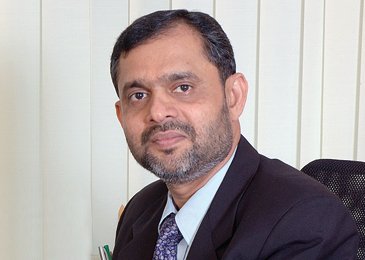'We lack expertise in analytical chemistry'
December 15, 2014 | Monday | Interviews | By BioSpectrum Bureau
'We lack expertise in analytical chemistry'
How has been the BioSuppliers business since the new government took charge?
As far as the business is concerned, we see customers, who had been hesitant in investing, suddenly interested in making the investments. Yes, they are willing to take the risk and are willing to invest. Otherwise, they were a little hesitant last year or earlier during the year. So, I see that changing in a big way. Business is doing well. That's good news.
Chromatography is one of the biggest market segments. How is this market looking for you now?
It is bigger than mass spectrometry, and the market is looking very good, quite exciting. I expect at least 15 percent growth to happen in the coming year (as opposed to 10-12 percent this year, which is down by 3-4 percent). We are optimistic that in the coming years, it would be much higher.
Is Water's looking to launch any new innovations this year?
Innovation is an ongoing process and new additions and improvements are made to the existing products as well. Last year, we introduced UPC square and new additions will be added to it. Similarly, UPLC continues to get new versions and new additions. When I say additions, these are changes that enhance the capabilities and the performance of those systems. R&D and new product development are happening simultaneously. We are also looking to add to our existing mass spectrometry product line. It's too early to say. We might add a new HPLC next year.
What are some of the challenges for BioSuppliers in India?
The expertise to handle high-technology instruments continues to be lacking. There are several reasons for this. One, analytical chemistry, mass spectrometry, and chromatography are not taught at schools and colleges till you study MSc. The number of people who study analytical chemistry is very limited. But the way the market is growing, nearly 4,000 HPLCs are added every year. Even with a single person handling 3-4 HPLCS, you still need 1,000 operators. Where are those people? We don't have that kind of an expertise. So we end up investing a lot more on training. It is the lack of expertise that prevents people from using the instruments rather than inefficient systems. There is no institution that provides intensive training. People are not employment ready.
How do you address the issue of expertise? What do you think needs to be done?
We, as a company, offer training to a number of students. We have a 25-member support team dedicated to training, development, and support and this is excluding engineers who are doing installation in the job training or how they use it. We have 25 PhDs and postgrads in chemistry who are providing candidates with both field training and application and method development training. We provide the necessary training. We have a list of schools where we conduct the same kind of programs. We also offer a lot of in-house programs. But there is only so much that we can do.
Do you think public-private partnership (PPP) can work in this arena?
PPPs will definitely help. It is good and can be implemented. For us, empowerment is the golden standard. The products should be compliant ready. Indian customers are very quality-conscious, so we have to make sure that we provide them with the best quality.
What's the outlook for the market?
Despite the challenges, there is a silver lining in the industry. Essentially, it's a growing market and we have both opportunities and challenges in a growing market. Opportunities are that more and more companies are being setting up, more people are buying it.









